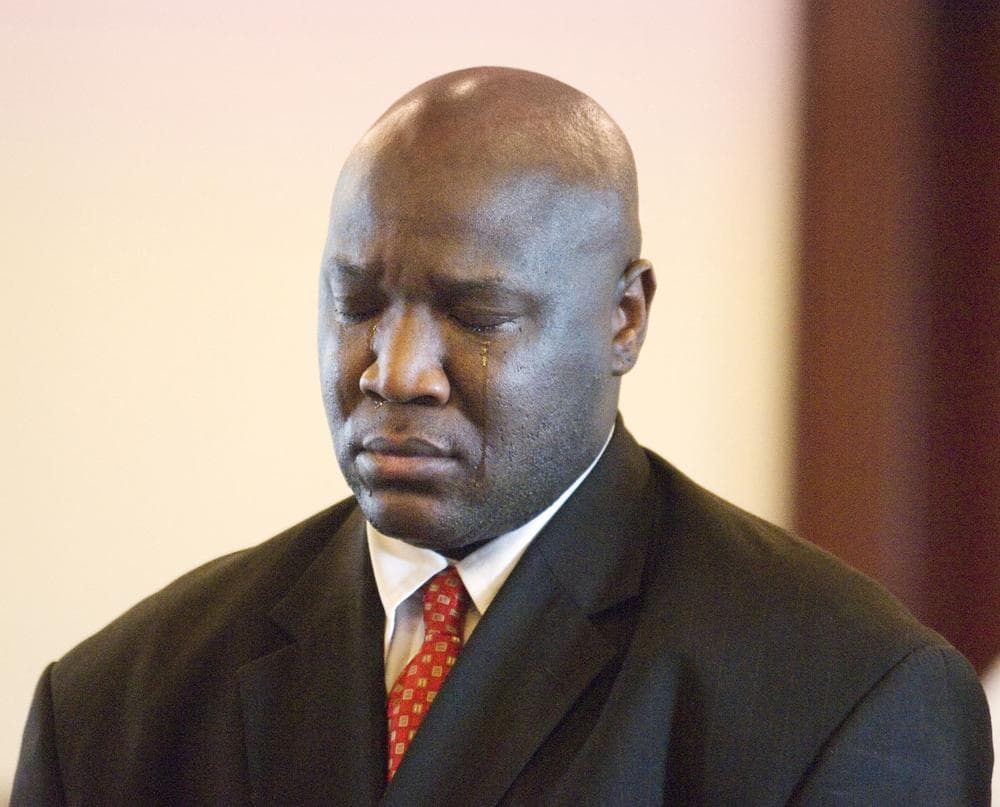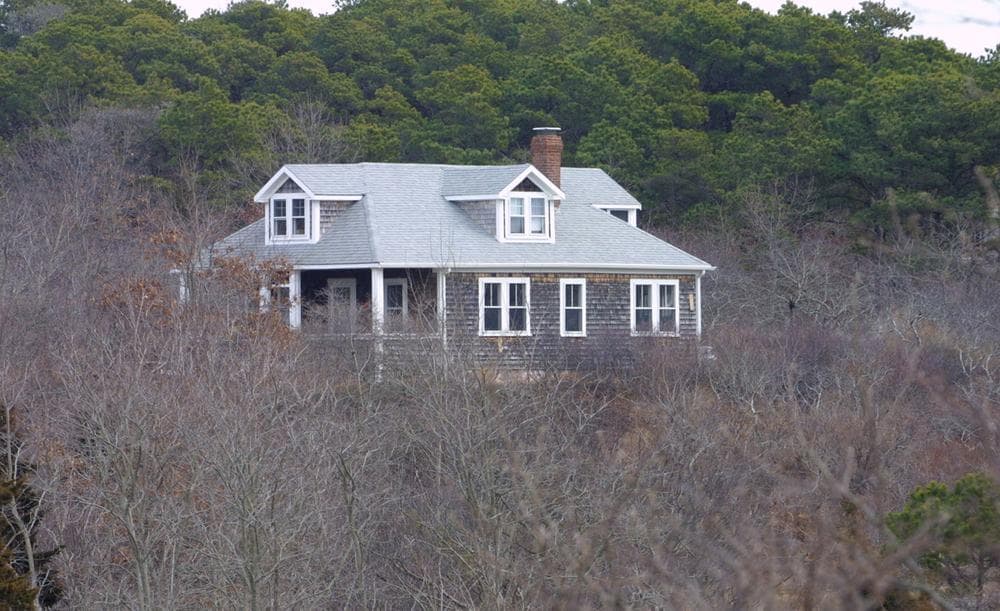Advertisement
Peter Manso Finds 'Reasonable Doubt' In Worthington Case
Resume
This segment may prove inappropriate for some listeners. It includes graphic descriptions of a murder.
Christa Worthington was 46 years old when she was found murdered in her Truro home in 2002. It was a headline-grabbing, ultra-high profile case that gripped the Cape for years.
Peter Manso was living nearby at the time. This summer, he published a new book about the grisly murder, “Reasonable Doubt: The Fashion Writer, Cape Cod and the Trial of Chris McCowen.”
In the book, Manso raises two disturbing questions about what he terms the “real Cape Cod”: Is the wrong man in prison for murder? And is he there because he is black, because of a culture of racism on the Cape?
The Murder And The Muckraker
Manso is a familiar name to longtime Cape Cod residents.
“I’ve been on Cape Cod for most of my adult life,” Manso told Radio Boston's Meghna Chakrabarti. “In fact, my child life, I was brought here in the summer, my father was a Provincetown painter and artist.”
His father was the abstract painter, Leo Manso. By virtue of growing up among authors and artists, Peter Manso himself became a writer, with more than 14 books to his name.
Manso is notorious, contentious and controversial. He once shared a house with Norman Mailer, but Manso’s searing biography of Mailer so infuriated the literary giant, it destroyed their friendship.
Another of Manso's books, "P'Town: Art, Sex and Money on the Outer Cape" was such an unflattering view of what he called "the new gay gentry" of Provincetown that it made him more than a few enemies on the Outer Cape.

“As a writer, I’m a troublemaker,” Manso said.
The "troublemaker" was at his Truro home on the night when Christa Worthington was murdered in 2002. The two were neighbors.
Worthington was from an old Cape family. She was a Vassar-educated writer and the mother of a 2-and-a-half-year-old daughter. The little girl was found clinging to her mother’s half-naked bloody body days after Worthington was murdered.
“On her bare stomach were tiny red handprints,” Manso writes in his book. “She had tried to clean her mother, as her mother had so often cleaned her, using a hand mitt to wipe up the blood.”
The Journalist Joins The Defense
Three years after Worthington’s murder, police arrested Christopher McCowen.
McCowen was a trash collector in Truro. He is black, and reportedly has an I.Q. of 76. In 2006, McCowen was tried and found guilty of the rape and murder of Christa Worthington.
It's at this point where Manso's relationship to the case, and the charges he levels in his book, cross over from complication to controversy.
“I don’t believe he did it,” Manso said.
But, Manso isn't a disinterested journalistic observer of this case. He was actively assisting the defense team during McCowen's trial, providing them with research he was gathering for the book.
Manso does not deny collaborating with the defense. But he brushes off any problem such a partnership might pose to his objectivity.
“Had the defendant in this trial not been black but been white, I believe that there would not have been guilty verdict," Manso said. "There would have been at the very least a hung jury, if not an acquittal.”
Manso is not a man to pull his punches. His book is a unflinching indictment of what he believes is a deep-seeded culture of racism on Cape Cod. The Boston Globe once quoted him as saying the "Cape is a suburb of redneck Mississippi."
“There’s no way of understanding this trial and the outcome of this trial without dealing with the issue of race,” Manso said. “There was no mention of rape in the three years of investigation. The medical examiner said there was not evidence of rape. So why rape? Well, because this guy was black. And also because the prosecutors needed a motive for the killing.”
Critics point to such bombastic pronouncements as evidence of Manso’s personal bias in this case, and that his enmity seems especially acidic in his attack on Cape and Islands District Attorney Michael O’Keefe.
O’Keefe indicted Manso on a dozen firearms charges, unrelated to the Worthington case, in 2008.
Still, Manso asserts that there were holes in the prosecution's case against McCowen. Chief among them, there was no physical evidence tying him to the act of the murder. No fingerprints. No witnesses. No weapon.
However, as Manso admits, there was DNA evidence at the scene.
McCowen's sperm was found on Worthington's body. They had had sexual intercourse. But according to Manso, here's where racism again rears its head.
“The case hinged on the jury’s refusal to believe that this well-to-do, Vassar educated, white woman would have a relationship not only with a black man, but a garbage man,” Manso said.
Controversy On The Cape
The media frenzy and the way in which the Worthington case engulfed life on the Cape was unlike anything anyone had seen in a generation.
“It had set something loose in the mass consciousness,” Manso said. “Writing this book, I realized that Cape black folk make up only 1.6 percent of the population compared to 14 percent nationally … There’s been a hardening on the Cape that I can only call overt racism.”
Many residents on the Cape reject Manso's charge. Wellfleet Police Chief Richard Rosenthal told the Cape Cod times, "What happens with these kind of books is someone comes up with a theory and the theory is then bolstered by supposition and supported by conjecture."
And yet, Manso feels such denials only further his claims. For example, though McCowen was found guilty on all counts, it has been well established that racism played a very serious role during the jury's deliberations.
“There’s no way of understanding this trial and the outcome of this trial without dealing with the issue of race."
Peter Manso, author
“There was one female black juror who was the real holdout," Manso said. "They sort of ganged up on her. Asked her - how do you straighten your hair? At one point they had to close the windows for all the screaming that was going on.”
Shortly after the trial three jurors came forward to complain to McCowan’s attorney that even more incendiary racist remarks had been made during the jury’s deliberations.
So incendiary, in fact, that in 2008, a Massachusetts Superior Court judge called the jurors back for an extremely rare public hearing. Nevertheless, the superior court judge upheld McCowen's conviction.
The case was then appealed to the Massachusetts Supreme Judicial Court. In December 2010, the SJC heard the case. It, too, refused to overturn McCowen’s guilty verdict.
But not without a sharply worded concurring opinion written by the SJC’s chief justice, Roderick Ireland.
Comments in the jury room had raised “the specter of racism, warranting closer examination” of the initial verdict, Ireland wrote. He went further, wondering if such comments were “simply small talk or indicative of implicit bias.”
Ireland is the first African-American to lead the state’s highest court. He had been appointed just two days before hearing McCowen’s case.
Manso’s Ultimate Indictment Of The Cape
Manso’s book is 416 pages long. It is exhaustively researched, passionately written and destined to infuriate Cape residents.
“This book is not about Chris McCowen’s innocence or non-innocence,” Manso said. “My foremost interest here, is how this awful crime has impacted on this community.”
It’s an odd assertion, given that he so ferociously argues McCowen’s innocence.
Yet, one thing remains uncertain: How much of Peter Manso's claim is true? How much was racism a part of this case?
But another thing is absolutely clear. In publishing "Reasonable Doubt: The Fashion Writer, Cape Cod and the Trial of Chris McCowen," Peter Manso has not made new friends on the Cape Cod.
Tony Jackett, Christa Worthington’s former lover and father of her child, told the Cape Cod Times, "I don't believe for a minute she had an intimate relationship with McCowen. She was such a devoted mother. Why would she, in the middle of the night, have sex with a slobbering drunk on the floor with the baby in the house? It didn't happen."
This segment aired on August 9, 2011.